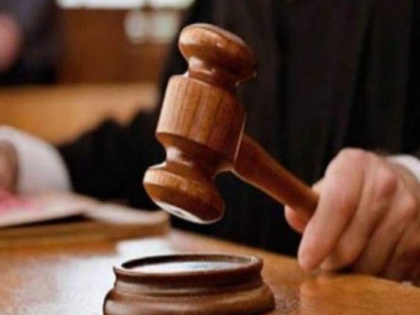Lok Sabha Passes Three Key Criminal Law Bills, Know What Are The Changes
By Lokmat English Desk | Published: December 22, 2023 08:05 AM2023-12-22T08:05:21+5:302023-12-22T08:07:08+5:30
The Lok Sabha passed three crucial Bills aimed at reforming the criminal justice system, with Union Home Minister Amit ...

Lok Sabha Passes Three Key Criminal Law Bills, Know What Are The Changes
The Lok Sabha passed three crucial Bills aimed at reforming the criminal justice system, with Union Home Minister Amit Shah highlighting the focus on ensuring swift justice over mere punishment. The key points of the Bills are:
Bharatiya Nyaya Sanhita (Indian Penal Code Replacement):
- Introduction of the definition of a child.
- Inclusion of transgender individuals in the definition of 'gender.'
- Expanded definition of a document to include electronic and digital records.
- Introduction of a new chapter addressing offenses against women and children.
- Addition of a new chapter focusing on 'inchoate offenses' like attempts, abetment, and conspiracy.
- Introduction of several new offenses, including organized crime, terrorist acts, petty organized crime, hit and run, mob lynching, hiring a child to commit an offense, sexual exploitation of a woman by deceitful means, snatching, abetment outside India, acts endangering the sovereignty, integrity, and unity of India, and publication of false or fake news.
- Removal of the offense of attempting to commit suicide.
- Provision of community service as punishment for theft involving amounts less than Rs 5,000.
Bharatiya Nagarik Suraksha Sanhita (Code of Criminal Procedure Replacement):
- Expansion of the scope for declaring someone a proclaimed offender to include all offenses with a punishment of 10 years or more.
- Requirement of prior approval of senior police officers for the arrest of offenses with a punishment of less than 3 years.
- Allowance of up to 15 days of police custody during the initial 40/60 days of detention.
- Introduction of the concept of in-absentia trial.
- Introduction of an Electronic First Information Report (FIR).
- Introduction of preliminary inquiry for offenses punishable from 3 years to less than 7 years.
- Simplification of the meaning of bail.
- Granting of early release on bail for first-time undertrials.
- Simplification of the bail process in cases of acquittal.
- Relaxation of punishment for first-time offenders through plea bargaining.
- Prescribing specific timelines for various procedures and processes.
- Utilization of audio-video electronic means for recording evidence, deposition, and pronouncement of judgments.
- Introduction of a witness protection scheme.
- Expansion of the definition of 'victim.'
- Introduction of a provision limiting the number of adjournments to not more than 2.
Bharatiya Sakshya Adhiniyam (Indian Evidence Act Replacement):
- Inclusion of electronic records in the definition of 'document.'
- Consideration of statements received electronically as evidence.
- Establishment of additional standards for considering electronic and digital records as primary evidence.
- Introduction of more forms of secondary evidence.
- Explicit recognition of the admissibility, validity, and enforceability of electronic or digital records as evidence.
- Consideration of both husband and wife as competent witnesses in criminal proceedings against each other.
- Legally permissible conviction based on corroborated testimony of an accomplice.
- Addition of a comprehensive certificate for submitting electronic evidence to streamline the process.
These Bills aim to bring significant changes to the criminal justice system by introducing modernized definitions, procedures, and protections, while emphasizing a shift towards ensuring timely justice and fairness.
Open in app